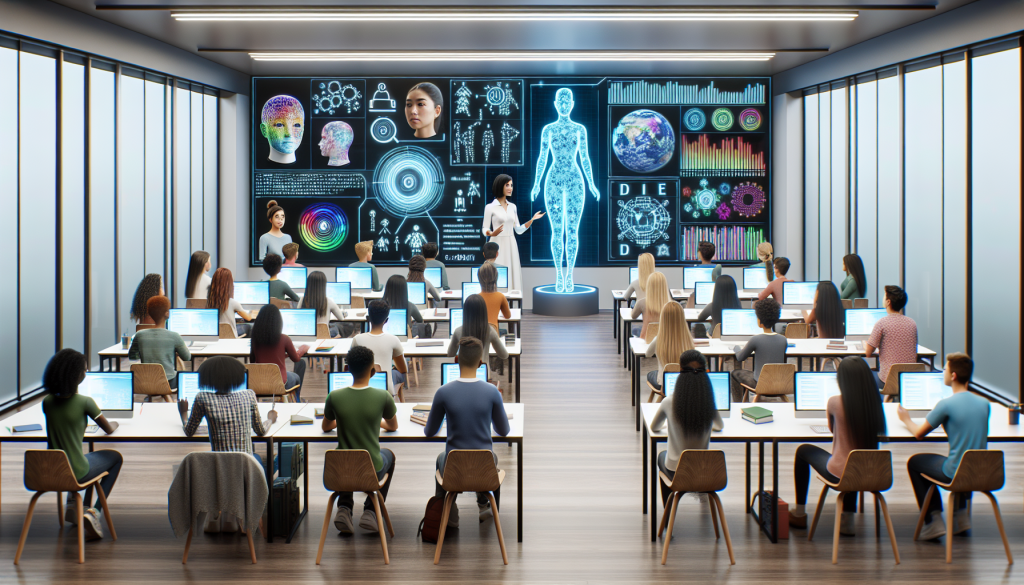
The Classroom Revolution: How AI is Transforming Education
The Classroom Revolution: How AI is Transforming Education
Education has always been an ever-evolving field, from the use of textbooks to the introduction of computers and the internet. However, in recent years, there has been a significant shift with the incorporation of Artificial Intelligence (AI) in the classroom. With the growth of technology, AI is transforming education in ways that were previously unimaginable.
AI refers to the simulation of human intelligence processes by machines, especially computer systems. It involves the development of algorithms and software that can make decisions, analyze data, and adapt to new information. In the education sector, AI is used to enhance learning experiences, improve student engagement, and optimize the overall education process.
Personalized Learning
One of the most significant impacts of AI on education is its ability to facilitate personalized learning. With AI-powered tools, teachers can collect and analyze data on students’ learning styles, strengths, and weaknesses. This information is then used to develop customized lesson plans and study materials, ensuring that each student receives a tailored education plan.
Personalized learning has been proven to increase students’ levels of engagement, motivation, and academic performance. It also allows for a more efficient use of instructional time, as students are learning at their own pace. AI can also provide feedback and suggestions for improvement, making the learning process more effective and interactive.
Adaptive Assessments
Traditionally, assessments have been a one-size-fits-all approach, where students are tested on the same material regardless of their individual abilities. However, with AI, assessments can be adapted to suit each student’s level of understanding. Adaptive assessments use algorithms to adjust the difficulty level of questions based on the student’s performance, ensuring they are challenged but not overwhelmed.
This form of assessment is more accurate in measuring a student’s understanding and progress, as it takes into consideration their individual strengths and weaknesses. It also reduces the pressure and anxiety that traditional assessments can cause, promoting a more positive learning environment.
Efficient Administration
Aside from improving the learning experience, AI is also streamlining administrative tasks in education. With the use of AI-powered software, teachers can easily create and grade assignments, track attendance, and manage student records. This frees up more time for educators to focus on teaching and providing individual support to their students.
Moreover, AI can also assist in identifying at-risk students and providing interventions to improve their performance. This early intervention can prevent students from falling behind and promote academic success.
Limitations and Challenges
While AI has undoubtedly transformed education for the better, it also comes with some challenges and limitations. Many educators are concerned about the ethical implications of using AI in the classroom, such as data protection and privacy issues. There is also a fear that AI may replace human teachers, which is not the case. AI can enhance teaching and learning, but it cannot fully replace the human element of teaching.
The Future of Education
As AI continues to advance and become more prevalent in our daily lives, its role in education will also continue to grow. It has the potential to transform teaching and learning, making it more personalized, efficient, and effective. However, it is crucial to remember that AI is a tool, and it is up to educators to use it responsibly and ethically.
The classroom revolution is here, and AI is leading the way. It is an exciting time for education, and with the right approach, we can harness the full potential of AI to provide students with a quality and tailored learning experience.
Conclusion
AI is revolutionizing education in ways that were previously unimaginable. Personalized learning, adaptive assessments, and efficient administration are just a few of the ways that AI is transforming the classroom. While there are certainly challenges and limitations, the future of education looks bright with the integration of AI. As we continue to explore its potential, it is essential to remember that AI is a tool that can enhance the learning experience, but it is ultimately up to educators to use it responsibly.
